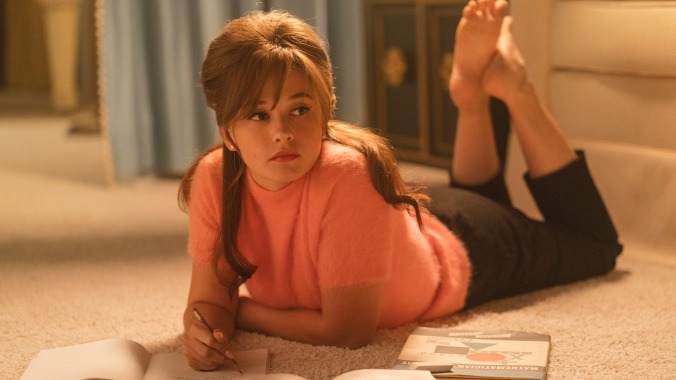Priscilla review: Sofia Coppola paints an elegant portrait of a troubled marriage
Cailee Spaeny gives a breakout performance as Priscilla Presley, while Jacob Elordi shines as a psychologically abusive and manipulative Elvis

Starring Cailee Spaeny and Jacob Elordi, Priscilla is adapted from Priscilla Presley’s autobiography, Elvis And Me, and chronicles the whirlwind life of Priscilla Presley as she goes from small-town army brat to global style icon and American legend. Tracing Priscilla and Elvis’ romance back to its humble roots on a U.S. Army base in West Germany, the film invites audiences to grow up alongside Priscilla, witnessing her starry-eyed infatuation with The King fade into a much harsher, crueler reality.
Especially in the wake of last year’s Elvis (director Baz Luhrmann’s glitzy, bombastic portrait that painted the King as a flawed but tragic American legend), director Sofia Coppola’s Priscilla makes for a viscerally vulnerable viewing experience that’s less interested in perpetuating the mythology around Elvis Presley than in bringing the honest, often unsavory underbelly of Priscilla and Elvis’ relationship to light. In the lexicon of American pop culture, Elvis has attained near-deific status—a reverence that leads to the frequent glossing over of his very real, very dangerous flaws.
Even Priscilla herself starts out under the spell that allowed Elvis to so easily woo the nation. Taken with his seemingly down-to-earth and sweet-talking personality, it’s not until years into their relationship that the reality of life married to a rock star truly begins to reveal itself. It’s a harsh lens on a beloved figure, but one that’s necessary in truly understanding her story—Coppola’s willingness to buck expectations and challenge convention in order to finally do right by Priscilla is as gutsy as it is gratifying.
Priscilla was just 14 years old when she met Elvis and her childlike innocence is slowly but surely chipped away the more time they spend together. Their 10-year age difference is a key factor in establishing the power imbalance that would define their relationship—and a deeply uncomfortable truth that’s further emphasized through the casting of Spaeny and Elordi.

 Keep scrolling for more great stories from A.V. Club.
Keep scrolling for more great stories from A.V. Club.